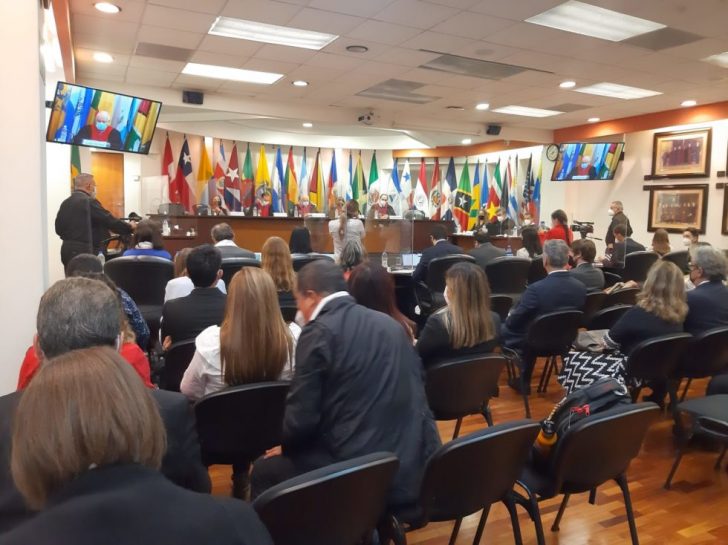CELS is appearing before the Inter-American Court of Human Rights as amicus curiae in the case brought by “José Alvear Restrepo” Lawyers Collective Corporation (CAJAR) against the Colombian State. For the past 30 years, under five different administrations, CAJAR members and their families have been the target of illegal intelligence operations, threats and persecution due to their work in the defense of human rights. The lawyers of this collective represent victims and relatives of extrajudicial executions, forced disappearances and massacres. They have been litigating cases against public authorities responsible for these acts for more than four decades.
In this international process, CAJAR has established that it was the victim of wiretapping on hundreds of communications, surveillance, harassment, an attack and, in particular, the use of the state apparatus to gather personal information on more than 40 of its members and their family members. Most of these actions began in the 1990s. They were executed by the Administrative Department of Security (DAS for its acronym in Spanish), in charge of intelligence and criminal investigation activities, functioning as a tool for the persecution and repression of political dissidents. Even after DAS’s dissolution and the passing of the first-ever intelligence bill in Colombia in 2013, actions against CAJAR continued under other state agencies. All these operations were conducted on the grounds of an alleged a state of exception for the protection of national security.
For 30 years, the Colombian Executive Branch treated Collective members and their families as terrorists. The new legislation did not restrict illegal activities against them and control mechanisms continuously denied them access to the information that the State gathered on them. The Judiciary rejected the multiple complaints filed and endorsed the ongoing persecution of CAJAR members. In short, the entire state apparatus created the conditions that enabled the illegal intelligence and surveillance tasks to continue over time and go unpunished.
In recent decades, in response to alleged threats, States have expanded their repressive function and deployed new and old practices of legal and illegal intelligence and criminalization to apply them against social organizations and those who organize to defend them. This case, which the Inter-American Court of Human Rights must now rule on, represents an opportunity to condemn the Colombian State and define State rules and obligations to prohibit intelligence and surveillance tasks on human rights organizations and their leaders, limit and restrict the scope of intelligence apparatuses, guarantee access to information, and oblige States to develop effective and independent control mechanisms.
Photo: Prensa Cajar

